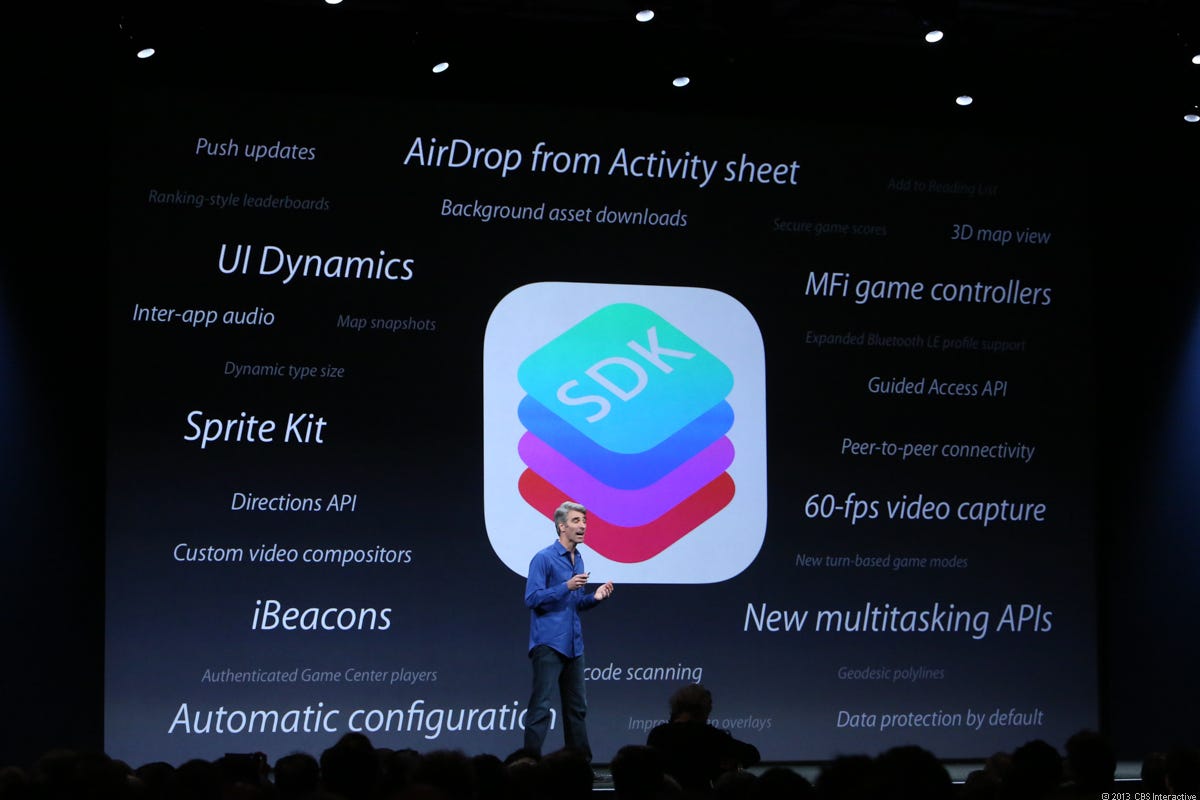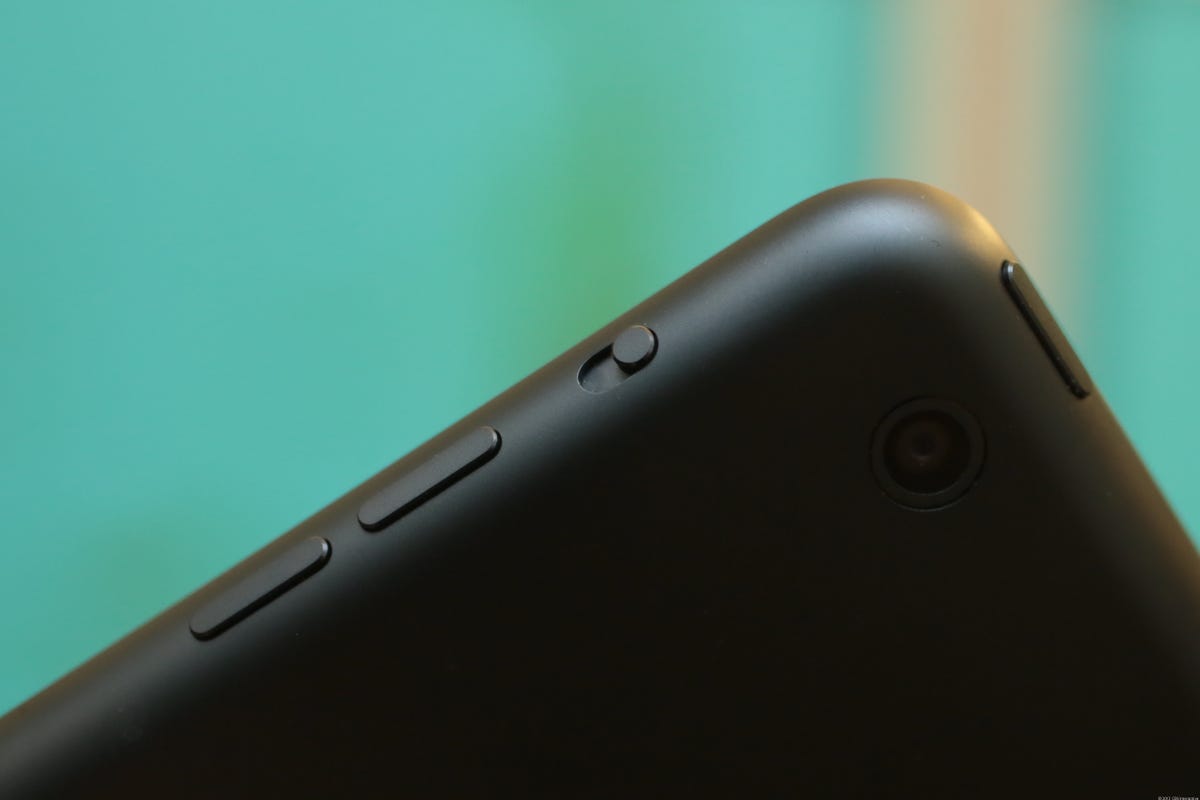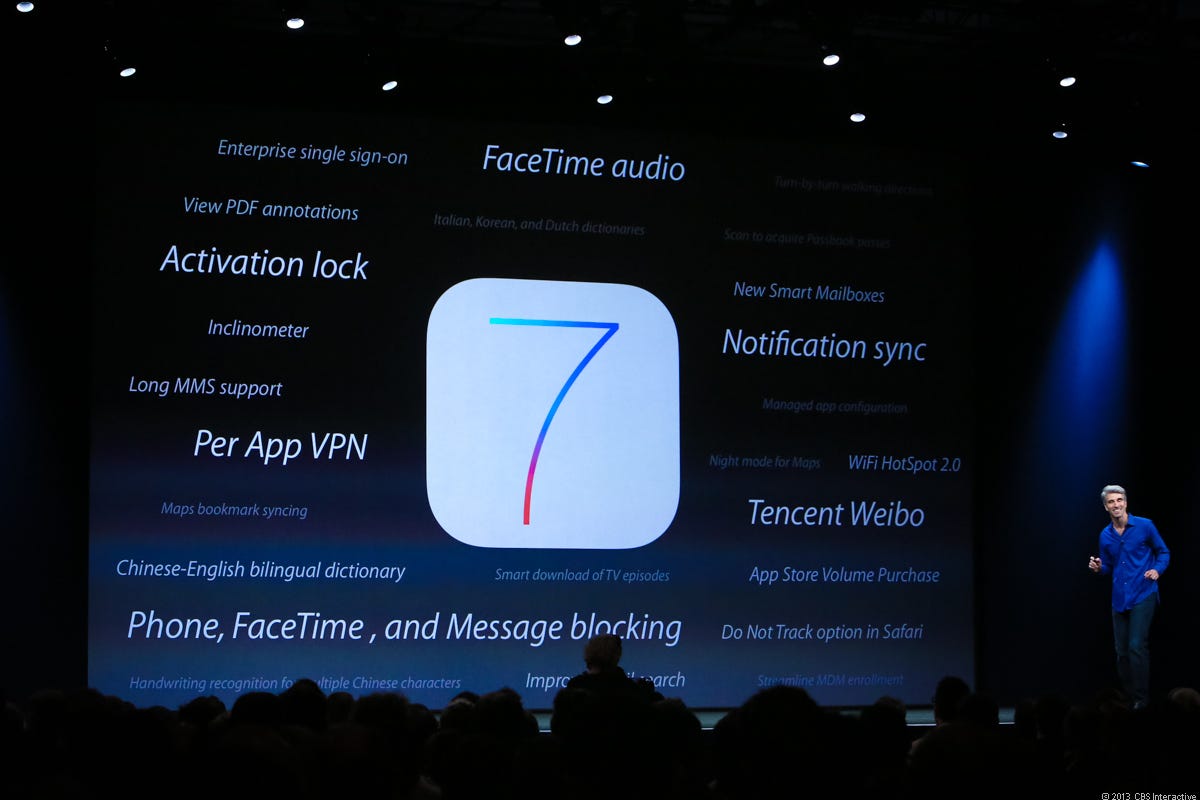Apple has played the game long enough to keep its secrets heavily guarded, but a close look at some of iOS 7’s lesser-known features hints at a few hardware changes we should count on (or not) for the next iPhone — and maybe for the next iPads, too.
Camera enhancements
It doesn’t take an OS upgrade to guess that Apple will improve its camera’s still-life and video capture hardware. That’s a given.
Now here’s a little evidence: iOS 7 supports 60fps video capture, while 30fps is the smartphone standard.
That means that the next iPhone could capture twice the information in the same span of time; I’m thinking at a resolution of 1080p HD.
That would make videos even smoother and less jerky than before, especially when you’re shooting moving objects or panning the camera. Videos captured at 60fps are also much more ideal for producing slow-motion videos.


James Martin/CNET
Beyond video capture, there are also implications for shooting burst mode at a rate of 60 frames for each second you hold down the shutter. Apple might not support that kind of burst mode, but the capability would be there.
The hardware significance in all this comes down to an image processor. While the iPhone 5 might be able to technically handle the uptick in speed requirements for shooting at double the frame-rate, a more finely tuned image processor could conserve battery life with all the image huffing and puffing.
Related stories
- Hands-on Apple’s iOS 7 update
- Five iOS 7 alternatives to tide you over
- Catch all the news from WWDC 2013
As long as Apple is making changes, it’ll probably also continue its forward march on the camera sensor, which would boost image quality to really take video performance a step forward.
Taken together, these background changes could add up to create some neat camera app options and tricks.
New sensor
We know that iOS 7 supports an inclinometer, which is a tool to measure a slope, elevation, or declines, especially in relation to gravity.
What’s less clear is if Apple is adding a new physical sensor the way that Samsung did with the Galaxy S4’s barometer and humidity sensors, or if it’s compiling data measured from existing sensors.
The fresh new look of Apple iOS 7 (pictures)






Let’s say for the sake of argument that it’s a physical sensor. Gauging your phone’s real-time incline could be interesting in a variety of applications, say changing the perspective on a 3D map, or maybe tracking your altitude shift over time on an outdoor fitness app.
There could be an added benefit in gaming, as well, particularly for augmented reality games that depend on precise knowledge of your spatial location to plot your surroundings or next move.
New toggle button
iOS has long included cylindrical buttons for onscreen toggles, which you can find in such locations as the Settings menu. iOS 7 changes the shape, making them shorter.
It’s more than possible that Apple will redesign the iPhone’s hardware sound toggle on the left spine to match the OS design. There’s a hardware precedent for this, too. That’s the exact same horizontally sliding design we see in the iPad Mini tablet.


Sarah Tew/CNET
No NFC
We didn’t see support for NFC, or near field communications, in the iPhone 5, and if Apple’s investment in its wireless AirDrop protocol is any indication, I doubt we’ll see it in the phone’s next generation, either.
Apple has so far chosen to dodge NFC’s physical tapping for mobile payment and content-sharing by leaning on software solutions: Passbook for payments and tickets, and AirDrop for sharing photos and video.
To drive the point home, Craig Federighi, the man now overseeing iOS, pumped up AirDrop at WWDC by saying, “There’s no need to walk around the room, you know, bumping phones.” Those aren’t words you’d hear from a company scrambling to add NFC.


James Martin/CNET
Other hardware rumors
Whatever the next iPhone has, iOS 7 will play a major role in bringing the phone to life. Here are a few other items that Apple could implement, according to the rumors:
Which other hardware enhancements make your personal features wish list for the iPhone, iPad, or iPad Mini? Pipe up in the comments below.
Special thanks to CNET camera editor Joshua Goldman.


Now playing:
Watch this:
Apple gives iOS a major facelift
6:20



